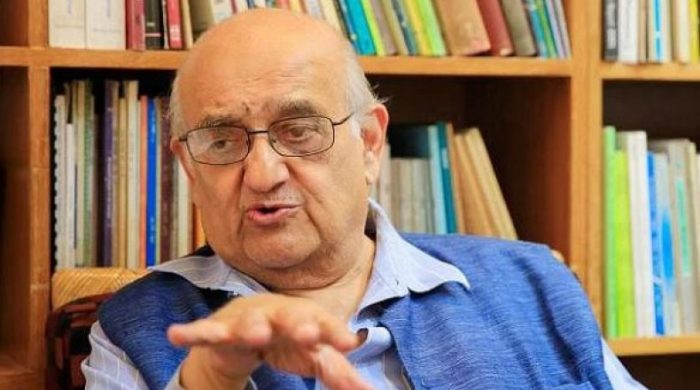Political group multiplies fortunes: discussion

- Update Time : Sunday, February 25, 2024
- 29 Time View

Economist Rehman Sobhan said on Saturday that the class of politically privileged people had multiplied their fortunes through rescheduling defaulted loans, which became part of a business model that disrupted socio-economic progress.
Even good and competitive businesspersons have preferred to use default to stay competitive, he said while addressing a discussion titled, ‘The Emergence and Rise of Dominant Party State in Bangladesh: What Consequences from Democracy and Development’ held in the capital.
If someone is borrowing money without having to pay interest and someone is borrowing money and paying interest, you are not competing on an even playing field, said Rehman Sobhan, also chairman of the independent think tank Centre for Policy Dialogue.
Noting that politics had become a very important instrument for participating in business, he said that it had now gone all the way down to the union parishad level.
Political access and the ruling party have become the main instruments for accumulating capital, he said.
Now, the fastest rise of fortunes from ground level to the top and the emergence of people owning 10 banks originate through political proximity and political access, he said.
Blaming a complete deinstitutionalisation of the country, Rehman Sobhan said that political connections determined the creation of loans and the tax rebate.
The Anti-Corruption Commission, the National Board of Revenue, or any functioning institution—all these are selectively applied so that no one really knows what the rule of law is over here, he said.
He also said that political parties had become deinstitutionalised in Bangladesh as they became an agglomeration of people now only motivated by patronage and the protection of the selective application of law to stay in business.
Calling the overall situation very dangerous, he said that it would affect the aspiration to become a more developed society.
The presentation of the session was delivered by Mirza M Hassan, senior research fellow at the BRAC Institute of Governance and Development.
He said that the county had been witnessing a dominant party system for almost 43 years and the creation of a class enjoying power politics.
Referring to the one-sided election held recently, he said that the guarantee to be a member of parliament was most welcoming for the class.
Categorising them as elite, he said that the non-elite group had more interest in the prices of essentials than elections.
He said that the popularity of the ruling political regime slid with the price hike on essentials.
He criticised the fixation of the lowest wage at Tk 1200 for ready-made garment workers, calling it a raw deal.
He said that the ruling party would experiment to get legitimacy amid a consistent push from the Bangladesh Nationalist Party.
Hassan doubted that capitalists dominating policy decisions would be able to break political dynasties.
Chaired by Rounaq Jahan, a distinguished fellow of CPD, Mahbubul Mokaddem Akash, a professor of the department of economics at the University of Dhaka, and Ashikur Rahman, a senior economist at the Policy Research Institute, participated in the discussion.
MM Akash predicted that the ruling Awami League would break away in the absence of party president Sheikh Hasina, also the country’s current prime minister.
Referring to Sri Lanka, India, and Nepal, he said that the continuation of dynastic rule by appeasing the military and bureaucrats was not sustainable.
Ashikur Rahman lamented that democracy didn’t grow in Bangladesh despite four successive elections held under the caretaker administrations between 1991 and 2008.















